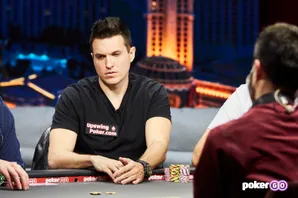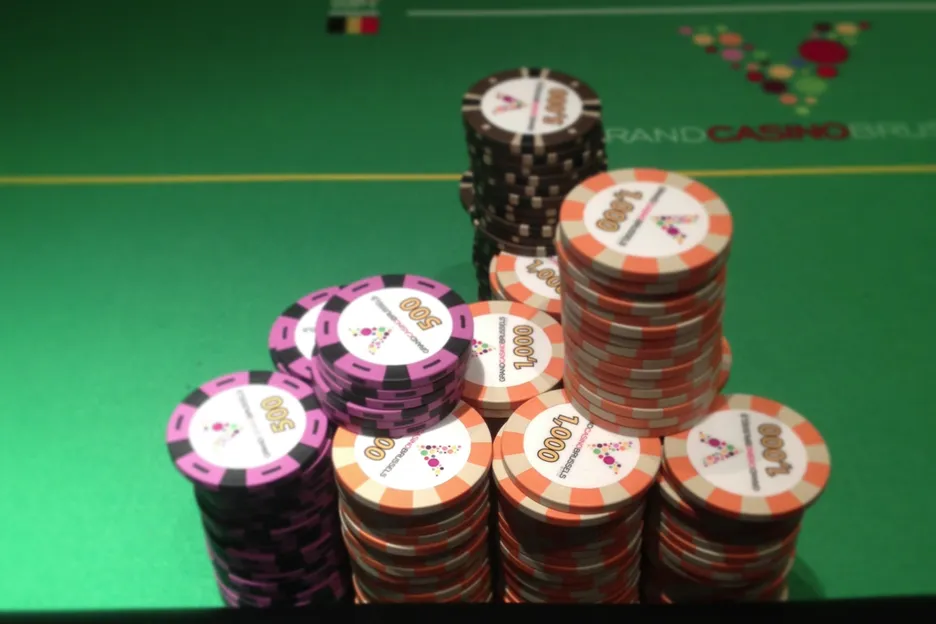
In the world of poker, it’s crucial to know when you’re being exploited and how you can turn the tables on your opponents. One brilliant observation made by Andrew Brokos (who’s known for his insightful poker coaching) sheds light on a common mistake poker players make when they focus too much on not being “exploitable.” His insight came during a podcast where a player asked whether folding would make them exploitable, and Andrew stopped them right there. He said, “In all the coaching I do, in all the hands that people send us, I always hear them saying, ‘If I fold here, is that exploitable?’ They never say, ‘If I call here, is that exploitable?’”
This is a key moment that highlights a critical error many players make.
The Problem: Over-Calling in Search of Protection
Once the concept of “GTO” (Game Theory Optimal) started gaining popularity in poker circles, it created a shift in how players thought about the game. The advent of solvers and sophisticated software models that simulate optimal play made many players hyper-aware of the idea that they could be “exploited.” This often led to a lot of fear about folding because, in theory, folding leaves you open to being taken advantage of. But this fear can be misplaced.
Here’s the good news: Your opponents are still bad at poker. Sure, the best players are improving every year, but most of the players you face aren’t anywhere near that level. So the fear of being “exploited” is often exaggerated.
The real issue, as Andrew highlights, is that players are constantly looking for reasons to call rather than fold. They think folding is boring, or that you can’t win a hand if you fold. This mentality leads to a lot of unnecessary calls, especially when players are concerned about being exploited for folding too much.
The Real Exploitation: Calling Too Much
Andrew’s insight is key: you can be exploited by calling too often. If your opponents are under-bluffing (which they usually are), your tendency to call too much can actually play into their hands. Most players under-bluff, which means they’re betting with value hands more often than they’re bluffing. By over-calling with bluff-catchers, you’re allowing yourself to be taken advantage of.
The solution here is to exploit the field’s under-bluffing tendency. Call less frequently, and only call when you believe you can beat some of the value hands your opponent might have. Don’t fall into the trap of thinking every call is necessary.
Case in Point: Top Pair and the Half-Pot Bet
You might be wondering, “Wait a minute, Lee – didn’t I throw away top pair with a decent kicker to a half-pot bet on the river, and she showed me a busted flush draw?” Well, good for you! Here’s why that’s not a problem:
-
The Pot Odds: By betting half-pot, your opponent gave you 3:1 odds on your call. That means you needed to be right 25% of the time to make the call profitable. In most cases, a player isn’t bluffing or value-betting worse than that frequency. Unless they’re a super-balanced player (which the average player is not), they likely aren’t bluffing 25% of the time in this situation.
-
Finding the Maniacs: If your opponent is truly a maniac who bluffs frequently, you’ll quickly notice that and adjust. But don’t jump to conclusions too quickly. Just because they bluff once doesn’t mean they’re a maniac. You need to objectively evaluate whether they bluff too often before making your adjustments.
-
Balanced Players: If your opponent is balanced and bluffs at the correct frequency, then maybe it’s just better to stay out of their way. In fact, if you find multiple balanced players at your table, it might be time to consider switching tables. You don’t need to play in games with multiple players who are playing optimally.
The Takeaway
Next time you’re considering a call, especially in a situation where you’re unsure if your opponent is bluffing or value-betting, take a step back. Ask yourself: “If I call here, am I being exploited?” Often, the right choice is to fold, even if it feels uncomfortable. And if you are in doubt, trust that most opponents aren’t bluffing enough to make a call profitable in the long run.
To summarize: Don’t just worry about being exploited by folding—worry about being exploited by calling too much. By being more selective with your calls and not getting caught up in the “fear of folding,” you can make better decisions and avoid being exploited by players who are under-bluffing.











